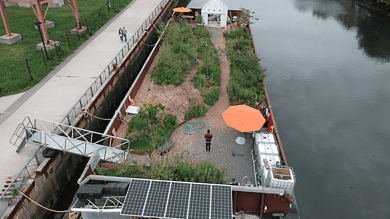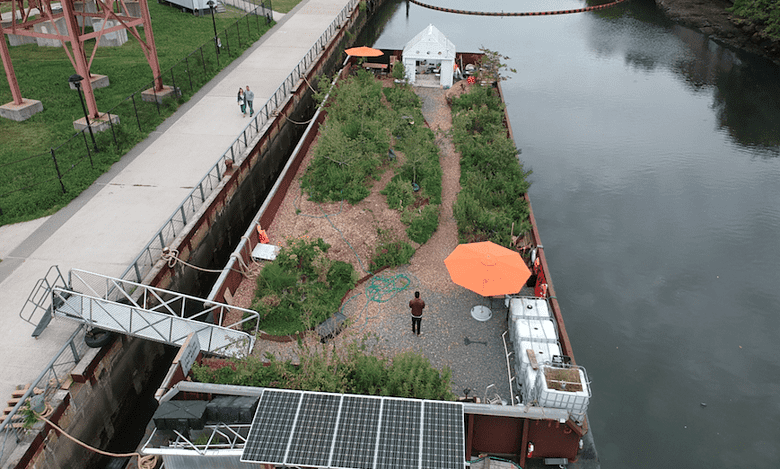
You read that right, there is a food forest floating in New York! It’s a project Mary Mattingly started in the summer of 2016 in Concrete Plant Park in South Bronx, one of the largest food deserts in the United States. A food desert is an area where fresh and affordable food is limited. These are often areas where the average income is low. The inhabitants of those areas are therefore more dependent on processed and imported food. It floating food forest , that the name ” Swale was the start of one pilot project with the goal of giving South Bronx residents the opportunity to grow their own food (for the first time in over 100 years!).
Why a food forest on a boat?
Food desert life is a daily occurrence for more than 3 million New Yorkers, which is more than 1/3 of the total population in New York City. The metropolis has more than 120 km² of public land. Swale was founded with the idea of using several acres to allow New Yorkers to grow their own food. The pan is to manage those plots through urban stewardship initiatives, guided by community partners in South Bronx. Admittedly, regulations prohibit the growing and harvesting of food in public places in New York because of fears that an abundance of harvesters would destroy the ecosystem. The initiators have found a loophole, and are now using this as a way to create a provocative public artwork to be developed in the form of a floating food forest. Developing a food forest on a boat that used to carry sand puts the project under maritime law, eliminating New York City Park Department regulations.
Fun fact: New York consists of almost 430 km² of water, which accounts for about 1/3 of the total area of the city.
Commons
The project follows the insights of social scientist Eliner Ostrom. She dedicated her life to studying how different indigenous cultures and other communities manage their commons. Commons are resources that can be used by all members of a group or community. She learned that Commons can be managed in a sustainable way in places where people know, trust and work together to maintain their commons. She was the first woman ever to win the Nobel Prize in Economy for her analysis of economic governance, especially for common stocks (the commons) . The principles that flowed from Ostrom’s research are at the heart of the principles on which Swale is built. There is therefore no limit on the harvest at Swale. This kind of trust in the users itself works so well that at times when no harvest is possible, users themselves brought more plants than they came to harvest.
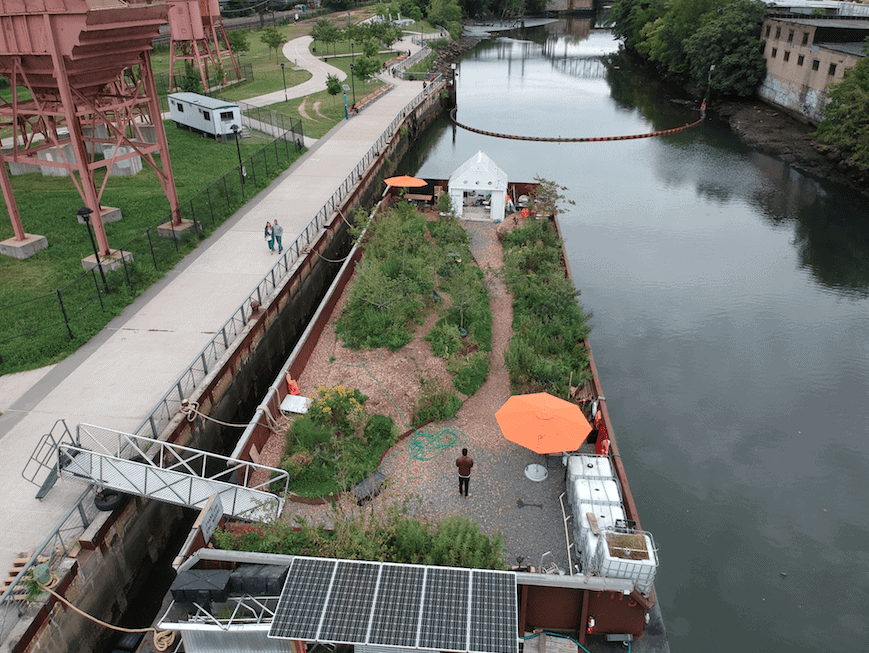
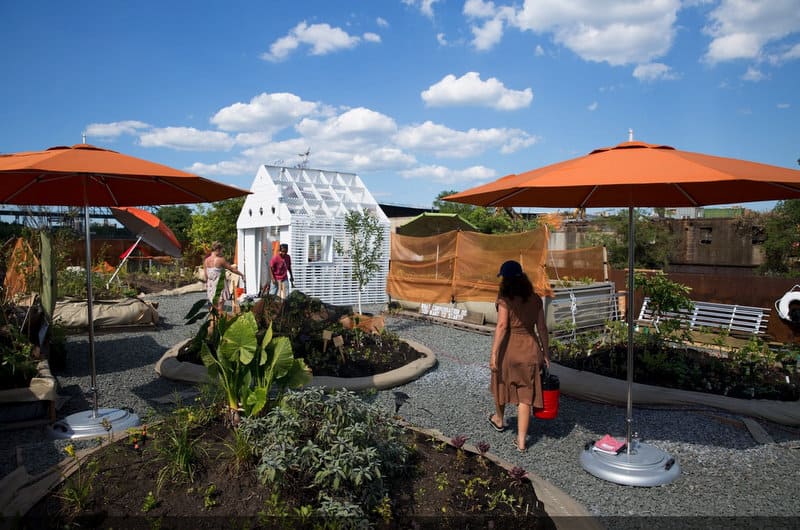

Swale is organized with the help of individuals, community groups and even city organizations to improve food and water. The initiators also organize guided tours, events and workshops, inviting visitors to draw attention to the way the city uses the land and the waterways.
As a direct result and community support, in 2017, one year after Swale’s inauguration, the NYC Parks Department established their first on-land pilot project in the form of a public “foodway” in Concrete Plant Park. In addition, a second foodway will open soon, in Government Island.
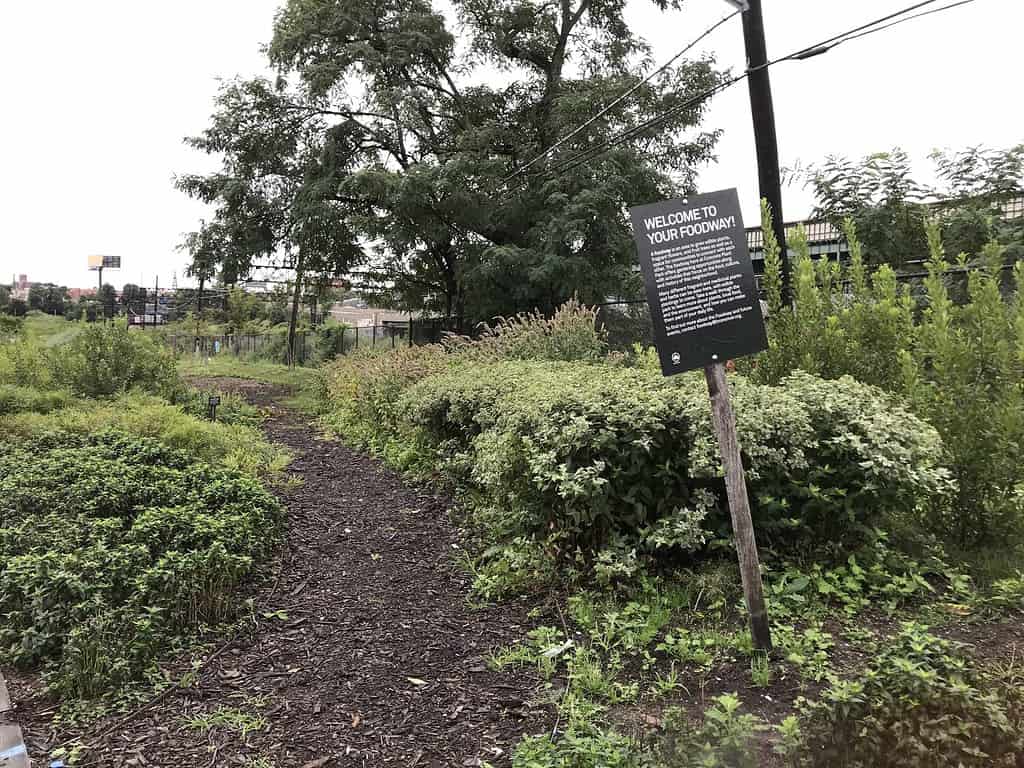
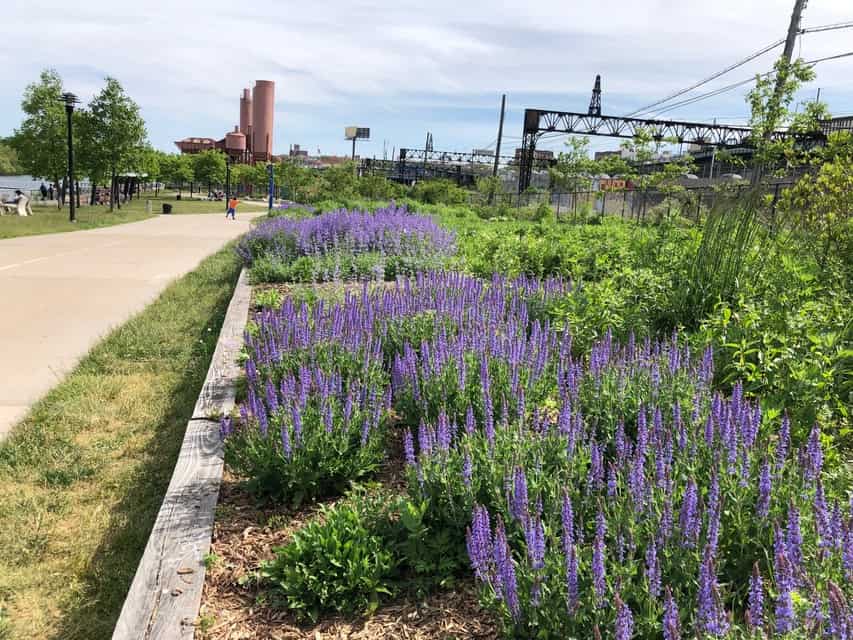
Concrete Plant Park
As the name suggests, Concrete Plant Park is a park laid out on the grounds of an old concrete factory (late 1940s-1987) in South Bronx. NYC Parks purchased this park in 2000 and is working with community and public organizations to further develop the park. In the park you can still see remnants of the concrete factory, making the park a beautiful combination of an industrial and natural environment.
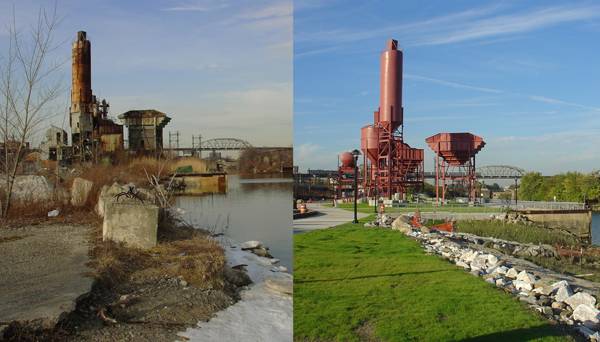
Further Swale development on Governors Island
Soon a 2nd foodway will open on Governors Island. Swale itself is already active there in the Swale House. This is a site where the organization can conduct further research into the development of sustainable food systems for residents in urban areas. Swale Lab also supports artists, writers and ecologists who want to work on the theme of legislation of agriculture, food and water as a common. For example, they can exhibit their work or help with the further development of initiatives such as the Foodways.

